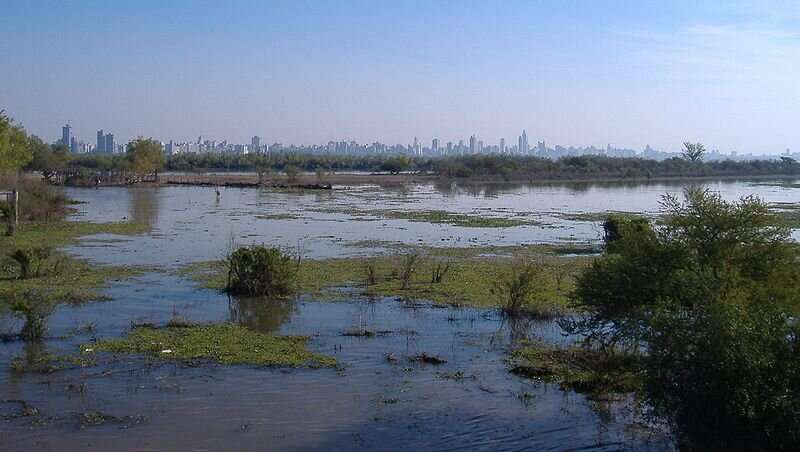
A new study analyses human impacts on biodiversity and ecosystem functioning in 72 lakes distributed across four large neotropical wetlands of Brazil – Amazon, Araguaia, Pantanal and Paraná. The research spans a 3.7million km gradient of human activities in Brazil.
The paper, published in Nature Ecology and Evolution, shows that human impacts alter the controls that biodiversity exerts over wetland ‘multifunctionality’ – which refers to the diverse functions that these ecosystems provide.
Dr Pavel Kratina, Senior Lecturer in Ecology at Queen Mary University of London, said: ‘This is one of a few studies that demonstrate how human pressures compromise the functioning of wetlands through their negative impact on biodiversity. To our knowledge, this work presents the first empirical evidence of a large-scale positive relationship between aquatic biodiversity across multiple organismal groups and multifunctionality of wetlands.
This high-resolution dataset revealed strong and consistent associations between the diversity of multiple groups of aquatic organisms and wetland multifunctionality. These results underline the important role of species richness and functional diversity in driving functioning of Neotropical wetlands.’
The researchers use a broad-scale dataset of biodiversity for seven groups of aquatic organisms to show their control over 11 ecosystem functions. These included:
- total phosphorous and nitrogen available in the water
- ecosystem metabolism
- multitrophic standing biomass
- photosynthetically active radiation
- microorganism abundance
- variation in habitat complexity underwater.
At the same time, they show these controls change across a gradient of wetlands that differ in their human pressure, which both directly and indirectly influences the relationships between diversity and ecosystem functioning.
Human pressure on the wetland was quantified using the Human Footprint (HFP) index, a recently developed index that incorporates eight different human pressures into a standardized cumulative index. These include built environments, crop land, pastureland, human density, night-time lights, railways, roads and navigable waterways.
Dr Kratina said: ‘We show a decline in species richness and functional diversity with increasing Human Footprint. Human Footprint index has a large direct negative effect on multifunctionality, but HFP also had indirect negative effects on the multifunctionality, mediated by declining species richness. Although these indirect negative effects of human pressure were driven by the decline in the diversity of most organismal groups, these effects were strongly mediated by fish diversity, because fish diversity is very important for functioning of wetlands.
The paper also showed that the Paraná wetland, which is in the vicinity of one of the most populated areas on the planet, seemed to be the most affected of the four wetlands.


